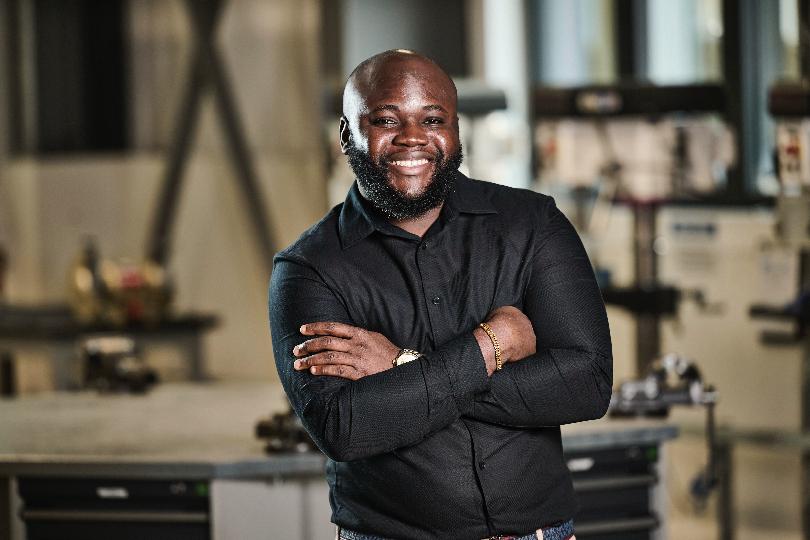Dr Francis T. Omigbodun, a leading figure in the field of biomedical engineering and sustainability, is making groundbreaking strides in the integration of artificial intelligence (AI) with sustainable practices. His work, spanning a variety of industries from healthcare to energy systems, demonstrates how AI can drive innovation in sustainability while also optimising solutions in the medical field, particularly through his contributions to bone implant research.
With a strong academic background, including a PhD in Mechanical Engineering from Loughborough University, Dr Omigbodun’s research interests have consistently aligned with advancing sustainable technologies and healthcare solutions. He currently holds significant positions in several professional organisations, including the Royal Society for the Encouragement of Arts, Manufactures, and Commerce (FRSA), the Institution of Mechanical Engineers (IMechE), and the Institution of Engineering and Technology (IET). These memberships not only showcase his leadership in engineering but also highlight his commitment to driving sustainability and the integration of AI into healthcare practices.
Leveraging AI for Sustainable Practices and Net-Zero Solutions
In his recent publications, such as Machine Learning’s Role in Achieving Global Net Zero Emissions (2024) and Machine Learning for Optimising Renewable Energy and Grid Efficiency (2024), Dr Omigbodun has demonstrated how AI can help achieve global sustainability goals. The role of AI in optimising renewable energy systems and grid efficiency is pivotal to reducing emissions and ensuring that energy systems are more reliable and sustainable. By integrating machine learning into renewable energy solutions, Dr Omigbodun’s work contributes significantly to the global push for net-zero emissions.
In a world increasingly concerned with climate change, his research provides a pathway for industries to minimise their carbon footprint while still meeting the rising demand for energy. AI algorithms can predict energy consumption patterns, enhance grid management, and improve energy storage systems, offering tangible solutions to some of the most pressing sustainability challenges of our time. Dr Omigbodun’s work in this field demonstrates his ability to blend technological innovation with environmental consciousness.
He notes, “AI is not just a tool for optimisation; it’s a fundamental enabler for achieving sustainability in our industries and daily lives. By using machine learning models, we can forecast and optimise energy usage more effectively, paving the way for net-zero emission solutions.”
Sustainability in Biomedical Engineering: AI-Driven Healthcare Solutions
Dr Omigbodun’s contributions to healthcare, particularly in the area of bone implants, reflect his deep understanding of sustainability. His research, such as Leveraging Machine Learning for Optimised Mechanical Properties and 3D Printing of PLA/cHAP for Bone Implant (2024), explores how AI-driven design processes can optimise the mechanical properties of bone implants to be both more effective and eco-friendly. In this study, he examines the use of composite materials such as polylactic acid (PLA), calcium hydroxyapatite (cHAP), and reduced graphene oxide (rGO), which are not only biocompatible but also contribute to more sustainable manufacturing practices.
The integration of AI into the design process enables precise customisation of implants that are patient-specific, improving both their functional and biological performance. His work with 3D printing also highlights the reduction of material waste during manufacturing, making it a more sustainable alternative to traditional methods of implant production. Dr Omigbodun’s research aims to bridge the gap between healthcare and sustainability by reducing environmental impact while improving the quality of life for patients.
He elaborates, “Sustainability is key in the medical field, especially as we continue to innovate with new technologies. The goal is to create solutions that not only improve patient outcomes but also reduce the carbon footprint of healthcare systems. The intersection of AI, material science, and 3D printing presents a unique opportunity to achieve both.”
AI-Driven Environmental Impact Solutions
In addition to his work on healthcare and energy systems, Dr Omigbodun is also focused on the broader environmental implications of industrial processes. His research paper AI-Driven Data Analysis of Quantifying Environmental Impact and Efficiency of Shape Memory Polymers (2024) delves into how AI can be used to assess and optimise the environmental impact of industrial materials. Shape-memory polymers, which are used in various industrial applications, are a key area where AI can assist in improving material efficiency and sustainability.
By using AI for predictive analysis, Dr Omigbodun’s research provides insights into the lifecycle of materials and how they can be made more efficient, reducing waste and energy consumption. This work is part of a larger effort to apply AI across multiple industries to ensure that sustainability becomes an intrinsic part of their operational strategies.
His research into Integration of Sustainable and Net-Zero Concepts in Shape-Memory Polymer Composites to Enhance Environmental Performance (2024) also highlights how AI can be used to create more sustainable polymer composites. These innovations in materials science have far-reaching implications not only for industry but also for the environment, aligning with his vision of a sustainable future driven by technological advancements.
Professional Impact and Recognition
In addition to his research contributions, Dr Omigbodun is actively involved in leading efforts to promote sustainable engineering practices through his editorial roles in journals such as Biomimetics and the International Journal of Bioprinting. As a guest editor, he helps shape the direction of cutting-edge research in areas that align with his interests in sustainability, AI, and healthcare.
His leadership in these organisations demonstrates his ongoing influence in the fields of biomedical engineering and sustainable technologies. By working with international research teams, Dr Omigbodun fosters collaboration and knowledge exchange that drives forward the global agenda for sustainability in both industrial and healthcare settings.
A Vision for the Future
Looking ahead, Dr Omigbodun is focused on expanding the role of AI in optimising sustainability across multiple industries. With the growing urgency of environmental and healthcare challenges, his work offers a roadmap for integrating AI into solutions that not only advance technological capabilities but also address critical sustainability goals. Through his research, Dr Omigbodun envisions a world where AI-driven technologies contribute significantly to a more sustainable and healthier future.
His dedication to sustainability, AI, and healthcare solutions positions him as a leader in shaping the future of both the healthcare and industrial sectors. As he continues to innovate and inspire, Dr Omigbodun’s work will undoubtedly leave a lasting legacy in the realms of AI, sustainability, and medical engineering.






